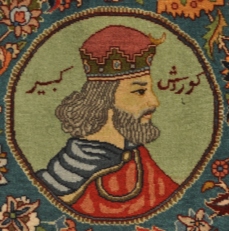 Zia-Ebrahimi, Reza. 2016. The emergence of Iranian nationalism: Race and the politics of dislocation. New York: Columbia University Press.
Zia-Ebrahimi, Reza. 2016. The emergence of Iranian nationalism: Race and the politics of dislocation. New York: Columbia University Press.
Reza Zia-Ebrahimi revisits the work of Fath?ali Akhundzadeh and Mirza Aqa Khan Kermani, two Qajar-era intellectuals who founded modern Iranian nationalism. In their efforts to make sense of a difficult historical situation, these thinkers advanced an appealing ideology Zia-Ebrahimi calls “dislocative nationalism,” in which pre-Islamic Iran is cast as a golden age, Islam is reinterpreted as an alien religion, and Arabs become implacable others. Dislodging Iran from its empirical reality and tying it to Europe and the Aryan race, this ideology remains the most politically potent form of identity in Iran.
Akhundzadeh and Kermani’s nationalist reading of Iranian history has been drilled into the minds of Iranians since its adoption by the Pahlavi state in the early twentieth century. Spread through mass schooling, historical narratives, and official statements of support, their ideological perspective has come to define Iranian culture and domestic and foreign policy. Zia-Ebrahimi follows the development of dislocative nationalism through a range of cultural and historical materials, and he captures its incorporation of European ideas about Iranian history, the Aryan race, and a primordial nation. His work emphasizes the agency of Iranian intellectuals in translating European ideas for Iranian audiences, impressing Western conceptions of race onto Iranian identity.
The table of contents:
Acknowledgments
Note on Transliteration and Spelling
Introduction
1. The Paleontology of Iranian Nationalism
2. Akhundzadeh and Kermani: The Emergence of Dislocative Nationalism
3. Pre-Islamic Iran and Archaistic Frenzy
4. Of Lizard Eaters and Invasions: The Import of European Racial Thought
5. Europe, That Feared Yet Admired Idol
6. Aryanism and Dislocation
7. The Road to Officialdom
8. Triumph
Conclusion: The Failure of Dislocative Nationalism
Notes
Bibliography
Index
Reza Zia-Ebrahimi is lecturer (assistant professor) in history at King’s College London.


 Yazdan Safaee, one of BiblioIranica’s team members, has written useful and accessible reviews of the first five volumes of the 20 volume
Yazdan Safaee, one of BiblioIranica’s team members, has written useful and accessible reviews of the first five volumes of the 20 volume 